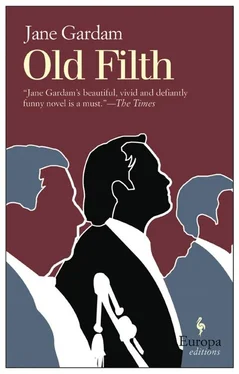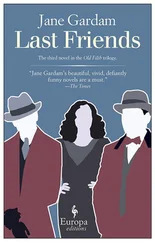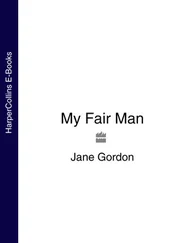And they had no children. No responsibilities. No one to come back to England for.
Or was it — the most likely thing — the end of Empire? The drawing-near of 1997? Was it the unbearableness of the thought of the arrival of the barbarians? The now unknown, but certainly changed, Mainland-Chinese whose grandparents had fed the baby Miss Betty on soft, cloudy jellies and told her frightening fairy tales?
Neither Filth nor Betty cared for the unknown and already, five years before they left, English was not being heard so much in Hong Kong shops and hotels and, when it was heard, it was being spoken less well. Many familiar English and Chinese had disappeared to London or Seattle or Toronto, and many children had vanished to foreign boarding schools. The finest of the big houses on The Peak were in darkness behind steel grilles, and at Betty’s favourite jeweller the little girls behind the counter, who sat all day threading beads and who still seemed to look under sixteen although she had known them twenty years, glanced up more slowly now when she rang the bell on the armour-plated door. They kept their fixed smiles but somehow found fewer good stones for her. Chinese women she knew had not the same difficulty.
So suddenly Filth and Betty were gone, gone for ever from the sky-high curtains of glittering lights, unflickering gold, soft-green and rose, from the busy waters of the finest harbour in the world and the perpetual drama of every sort of boat: the junks and oil tankers and the private yachts like swans, and the comforting, bottle-green bulk of the little Star Ferries that chugged back and forth to Kowloon all day and most of the night. This deck accommodates 319 passengers . Filth had loved the certainty of the 19 .
So they were gone, far from friends and over seventy, to a house deep in the Donheads on the Dorset-Wiltshire border, an old low stone house that could not be seen from its gate. A rough, narrow drive climbed up to it, curving towards it and out of sight. The house sat on a small plateau looking down over forests of every sort and colour of English tree, and far across the horizon was a long scalpel line of milky, chalky downland, dappled with shadows drawn across it by the clouds. No place in the world is less like Hong Kong or the Far East.
Yet it was not so remote that a doctor might start suggesting in a few years’ time that it might be kinder to the Social Services if they were to move nearer to civilisation. There was a village half a mile up the hilly road that passed their gate, and half a mile in the other direction, also up a hill for their drive ran down into a dip, were a church and a shop. There were other houses among the trees. There was even a house next door, its gateway alongside theirs, its drive curving upwards as did their own, though branching away. It disappeared, as did their own. So they were secluded but not cut off.
And it worked. They made it work. Betty was the sort of woman who had plotted that the end of her life would work, and Filth, having Betty, had no fears of failure. They changed of course. They discarded much. They went out and about very little. Betty wrote a great many letters. They put their hearts into becoming content, safe in their successful lives. Filth had always said — of his Cases—“I am trained to forget.” “Otherwise,” he said, “how could I function?” Facts, memories, the pain of life — of lives in chaos — have to be forgotten. Filth had condemned men to death. Had seen innocent men convicted. As a Silk he reckoned that fifty per cent of his Cases had gone wrong. In Hong Kong the judges lived in an enclave of palaces but behind steel gates guarded night and day.
In The Donheads they felt safe behind the lock of their old- fashioned farmhouse door that could never accidentally be left on the latch. Betty gardened, Filth read thrillers and biographies, worked now and then in his tool shed. He kept his judge’s wig in its oval black-and-gold tin box on the hearth, like a grey cat in a basket. Then in time, as there was nobody but Betty to be amused, he moved it to his wardrobe to lie with his black silk stockings and buckled shoes. He had not brought the Black Cap home.
Betty sat sewing. She often stared for hours at the trees. They went to the supermarket in Shaftesbury once a week in their modest car. A gardener came to do the heavy digging and a woman from a nearby village came in four times a week to clean, cook and do the laundry. Betty said that Hong Kong’s legacy was to make foreigners unable to do their own washing. After Betty died, the gardener and the woman continued to work for Filth. Filth’s lifetime of disciplined charm survived well.
Or so it seemed. Looking back, Filth knew that beneath his apparent serenity the years after Betty’s departure had been a time of mental breakdown and that mental breakdown in someone conditioned to an actor’s life (which is the Bar) can be invisible both to the sufferer and everyone else.
And this — the event he came to see as the beginning of enlightenment — occurred one Christmas, two years on. The cleaning lady started it.
Letting herself in with her door-key, talking as usual before she was over the threshold, “ Well ,” she said. “What about this then, Sir Edward? You never hear a thing down this way till it’s happened. Next door must have moved. Your next door. There’s removal vans all up and down the drive and loads of new stuff being carried in. They say it’s another lawyer from Singapore like you.”
“Hong Kong,” corrected Filth, as he always did.
“Hong Kong then. They’ll be wanting a domestic I dare say, but they’re out of luck. I’m well-suited here, you’re not to worry. I’ll find them someone if they ask. I’ve enough to do.”
A few days later Filth was told, courtesy of the village shop, the new neighbour’s name. It was, as the cleaning lady had said, indeed that of another Hong Kong lawyer and it was the name of the only man in his professional life, or come to that his private life, that Old Filth had ever detested. The extraordinary effect this man had had upon him over many years, and it had been much remarked upon and the usually buttoned-up Filth had not cared, was like venom sprayed from the mouths of Chinese dragons.
And the same had gone for Terry Veneering’s opinion of Old Filth.
Betty had never spoken of it. Kept herself apart. Became silent, remote. Filth’s Clerk, other lawyers, found the enmity almost a chemical, physical thing. In Hong Kong, the Bar watched. Old Filth, delightful wise Old Filth and swashbuckling Veneering, did not “have words” in Court, they spat poisons. They did not cross swords, they set about each other with scimitars. Old Filth believed that Terry Veneering was all that was wrong with the British masters of this divine Colony — jumped-up, arrogant, blustering, loud, cynical and common. And far too good at games. Without such as Veneering — who knows? Veneering treated the Chinese as if they were invisible, flung himself into pompous rites of Empire, strutted at ceremonies in his black and gold, cringed with sycophancy before the Governor, drank too much. In Court he treated his opponent to personal abuse. Once, when they were both still Counsel in an interminable case about a housing estate built over a Chinese graveyard (the housing estate mysteriously refused to prosper), Veneering spent days sneering at primitive beliefs. Or so Old Filth said in, and out of, Court. What Veneering said about Old Filth he never enquired but there was a mutual, seething dislike. Betty became haggard with the subject.
For Veneering got away with everything, snarled Filth. He bestrode the Colony on his thick legs like a colossus, booming on at parties about his own excellence. During a state visit by royalty he boasted about his boy at Eton. Later it was all “my boy at Cambridge,” then “my boy in the Guards.” “Insufferable,” cried Filth. Betty said, “Oh, hush, hush.”
Читать дальше












